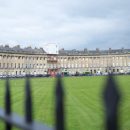Some say that post processing is now part of photography itself. Straight of the camera pictures are rare nowadays. Almost everyone edit their picture one way or another. Even some in-camera settings are already considered post processing.
But one can’t argue that post processing can help enhance your art. So here are some useful tools that photographers use in post processing.
Crop Tool
The crop tool is very useful and can change the impact of a photograph instantly. With this, you can crop off unwanted objects and maintain the subjects relationship with the viewer. You can also change the orientation of your picture, landscape to portrait and vice versa. Composition can also be affected by this. The rule of thirds, for example, can be achieved by simple cropping.
But cropping has its limitations. This is mainly affected by your camera and lens. You can’t be too aggressive in cropping if you don’t have enough megapixels. If you reach a pixel level crop, noise would be much evident. And if you’re lens is not good enough, you might notice some sort of sharpness deficit.
Dodge and Burn
A lot of photographers try to use this and fail. The most common mistake is using too much. By using too much, the viewer notices that the picture has been edited and focus on the edit rather than the photograph.
The dodge and burn tool is a good way to divert attention. If cropping can’t get rid of unwanted subjects, dodge and burn can redirect the attention by darkening or highlighting a part of a photograph. This tool can be used and landscape and even high end portrait retouching.
Healing Tool
The healing tool is commonly used to remove skin blemishes. But it can also be used in removing distractions. And with the improved version in Photoshop CS5, it’s a lot easier to unnoticeable edit pictures. Stray hair, a leaf, and sensor dust are just some things you can remove with the Healing Tool.
Sharpen and Blur
Another tool to enhance a photograph is the sharpen and blur tool. As the name suggests, they either sharpen or blur the photography. So why would someone blur a photograph? Others use this tool to further enhance bokeh and make the depth of field narrower. Some use this to remove attention from certain objects. Be careful though since the blur tool can be quite ugly if not used right. The blur of this tool is quite different from the bokeh of you lens. So don’t rely on this tool only.
The sharpen tool is commonly used to bring out mode details in certain objects. For example, you want the textures of the wood to be more aggressive, you can use the sharpen tool to get that effect. Caution though since too much sharpening will produce artifacts that are noticeable.
You have noticed that most of the tools were used to make the subjects more prominent. The tools were used to remove unnecessary objects in the photograph. With this, the impact of the subject to the viewer is enhanced. And part of photography is about that. A photograph must be viewed and having a strong impact is a good way to have a connection with the viewer.
So to those who are saying that post processing destroys the art, better rethink your stance. So better practice post processing, keep on shooting and embrace the light!






